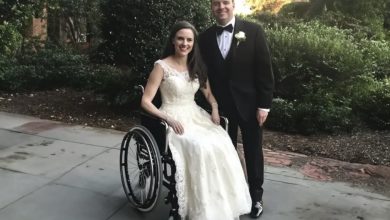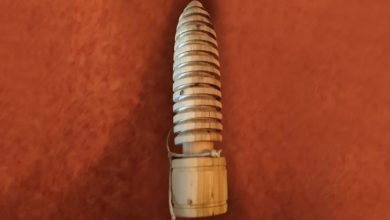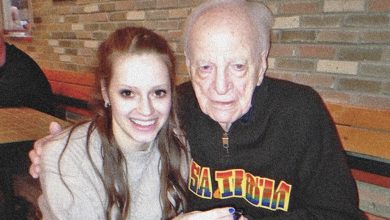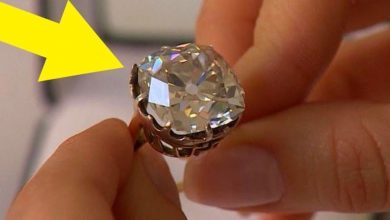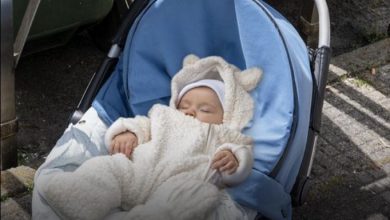I Threw My MIL Out of My Baby’s Party When I Saw Her ‘Gift
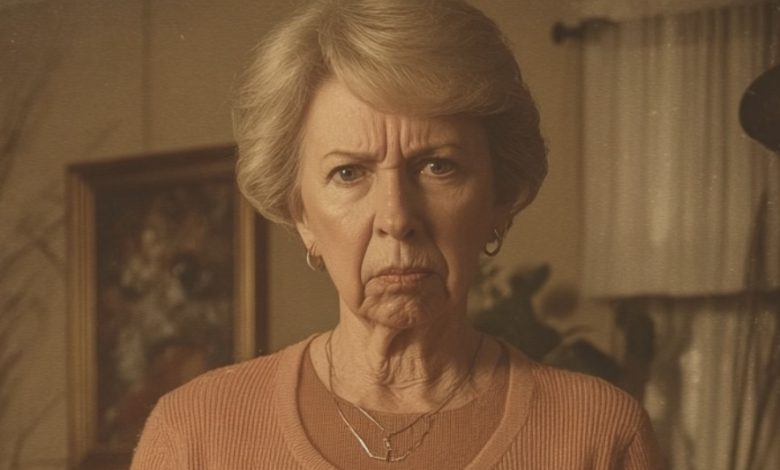
I never imagined I would be forced to ask my own mother-in-law to leave my daughter’s first birthday party. But when Linda handed me her “special present” for baby Christina, it became clear she’d crossed a line I couldn’t ignore. My name is Mandy, and this is how I learned that kindness can sometimes hide envy—and that protecting my family means standing up to the people who should love us most.
When Jake and I first met Linda, she made me feel welcome. I was nervous about meeting my fiancé’s mother, but as soon as I stepped into her living room, she took my hands in hers and smiled. I remember thinking her eyes lingered on my face as if she were memorizing every detail. “You’re perfect for my son,” she’d said, her voice full of warmth. “Just perfect.”
That kind greeting led to coffee dates, laughter over media disasters, and a shared joke about the worst green bean casserole at Thanksgiving. We never became best friends, but I thought our relationship was solid—until baby matters changed everything.
After a year of trying to get pregnant, we finally saw a fertility specialist. My heart sank when the doctor told me I had early ovarian failure and that my eggs were no longer viable. Jake and I cried together in his office, mourning the children we thought we would one day hold.
Then our friend Cheryl spoke up over coffee. “You two could explore surrogacy,” she suggested gently. I looked at Jake, and we both hesitated. “Would you consider being our surrogate?” I asked Cheryl. To my relief, she agreed without hesitation.
Everything felt hopeful again—until we broke the news to Linda. “Surrogacy and an egg donor,” she said, frowning as if I’d announced something shameful. “That’s… quite a step. Aren’t you worried you’ll feel left out?” I bristled, but when I explained that Cheryl would only carry the baby and give us her eggs, Linda’s gaze stayed fixed on Cheryl. “It’s such a gift to have that biological link,” she gushed to Cheryl. “Carrying your son’s child is almost as special as giving birth.”
Her words made my skin crawl. It felt like she wasn’t seeing me as the mother-to-be, but as someone who would miss out on the “real” experience.
From that moment, Linda’s attitude chilled. She barely spoke to me about the arrangements, preferring to chat with Cheryl about the miracle of maternity. Every mention of our plan came with a heavy undercurrent: real motherhood belonged to the woman with the baby bumps, not the woman whose heart longed to hold her child first.
When our daughter, Christina, finally arrived in spring, I wept as the nurses placed her in my arms. But Linda was already planning her own photo shoot. She’d secretly hired a professional photographer and arrived at the hospital with bright flowers and a gift bag for Cheryl. The photographer snapped pictures of Cheryl cradling Christina, of Jake beaming beside them, and placed me at the edge of each shot. I never looked like the mother in any of those images—just an extra in someone else’s happy story.
A few days later, she posted her favorite shots online: Cheryl holding our newborn while Jake looked on adoringly. Her caption read, “So proud of my son and his wonderful surrogate. Our sweet granddaughter is blessed with two amazing parents!” The comments flooded in—congratulations for Cheryl and Jake, but barely a mention of me. I bit back tears every time I saw those notifications.
Cheryl and I met for coffee, and she confessed what I suspected: Linda had been calling her constantly, telling her how natural she was with Christina, how perfectly she and Jake “fit” as parents. Cheryl was polite but firm: “I gave you the eggs and carried your child, but I’m not walking into your family or replacing you.” That honesty only seemed to amuse Linda. I realized then that Linda wasn’t confused—she was deliberately pushing me aside.
By the time Christina’s first birthday rolled around, I had spent days decorating our backyard with pink streamers, balloons, and handmade favors. My mother and aunt had baked the cake, and we arranged a small tent for friends and neighbors to gather. I wanted that day to be about our little family—that Jake, our daughter, and I were stepping into a new chapter together.
Then Linda arrived, late and grand, like she owned the place. She breezed past my mother and chatted animatedly with Cheryl before handing me a large gift bag. “This one is very special,” she said in a tone that had everyone leaning in. “Open it now, so everyone can see.”
I felt a knot tighten in my stomach as I reached inside. The gift was heavy and wrapped in bright tissue paper. When I finally lifted the lid, I found a large, ornate picture frame. I pulled it out and gasped—inside was an illustration of Cheryl holding baby Christina, with Jake beside her, his arm around Cheryl’s shoulder. They were standing in front of my own house. I saw from the way faces around me went pale that everyone understood at once what this meant: I didn’t exist in Linda’s ideal family portrait.
The guests fell silent. My heart pounded. Cheryl covered her mouth with her hand. Jake’s face went blank. I handed the frame back to Linda and all I could manage was, “What is this?”
Linda shrugged, as if it were the most normal thing in the world. “I thought it would be nice to highlight the mother of my grandchild,” she said. “Cheryl gave us this miracle. Isn’t that what really matters?”
My blood boiled. I had carried that day in my mind for months and this gift was a slap in the face. I realized then that no matter how hard I tried to be part of Linda’s family, she had already decided I was a placeholder—someone to watch from the sidelines.
I drew in a deep breath. “I need you to leave,” I said, my voice trembling but strong. “It’s time for you to go.”
Her eyes widened in shock, as though she couldn’t believe I could speak to her like that. She opened her mouth to protest, but my husband, Jake, climbed onto a chair behind me. He raised his hand for silence. “That gift is not welcome here,” he said quietly, but firmly. “Please collect your things and go.”
Linda stood there for one long moment, her face a mask of wounded pride. Then she gripped the frame and stormed away, clutching the bag and the illustration as if they were a lifeline.
The rest of the party was a blur. Friends offered apologies and hearts on social media poured in later—messages about how wrong Linda had acted, how much they admired me for standing up for myself. But in the moment, what I felt most was relief. My husband came down from his chair and wrapped his arms around me. “I’m sorry I didn’t do that sooner,” he whispered. “You didn’t ruin anything today—you protected your daughter.”
After the party ended, I found my mother in the kitchen, wiping tears from her eyes. She hugged me tight. “You did the right thing,” she said between sobs. “You’re her mother. Nobody gets to take that from you.”
In the days that followed, Linda’s phone calls turned to texts, then stopped entirely—until Mother’s Day, when I received a single, curt message: “I’m sorry you felt hurt. Happy Mother’s Day.” I didn’t respond.
Cheryl and I stayed close. She told me she was sorry for not speaking up sooner. “I didn’t want to cause a scene,” she said. “But seeing that picture… I should have intervened.” She helped me erase the memory of that frame by giving me a beautiful scrapbook filled with photos of our own family—real pictures of me holding Christina, of Jake making her laugh, of Cheryl just smiling in the background as a friend, not the center of everything.
A few months later, Linda reached out again—this time to ask for a visit with her granddaughter. I paused before answering. My heart still ached at how she’d treated me. But I remembered the little girl who was now crawling through my living room, calling out, “Grandma?” when she saw Linda’s face. I realized nothing I did could erase my daughter’s bond with her grandmother.
So I agreed to a lunch—a neutral place, just the four of us. When Linda arrived with a small bouquet of flowers, I saw shame in her eyes. I didn’t rub in my victory. I simply said, “Thank you for asking.”
She reached out and ran her fingers through Christina’s hair. “I’m sorry I made you feel small,” she said to me. She whispered to Christina, “I love you, little one,” and I watched my daughter grin up at her.
It wasn’t perfect. I didn’t instantly forgive her for that illustration or the tones she’d used when talking about surrogacy. But I realized that building a real family meant making space for everyone—especially those who had hurt us.
We left the restaurant that day with cautious smiles. I remembered the anger I’d felt when Linda tried to erase me. But I also knew I was strong enough now to protect my family without shutting people out forever.
That first birthday was a turning point. For me, it was proof that I would fight for my place as Christina’s mother. For Linda, I hope it was a lesson in respect. And for my daughter, it became the day her mother took her first real stand—showing her that love includes boundaries, that family is about belonging, and that sometimes you have to kick out the ones who forget your worth.




